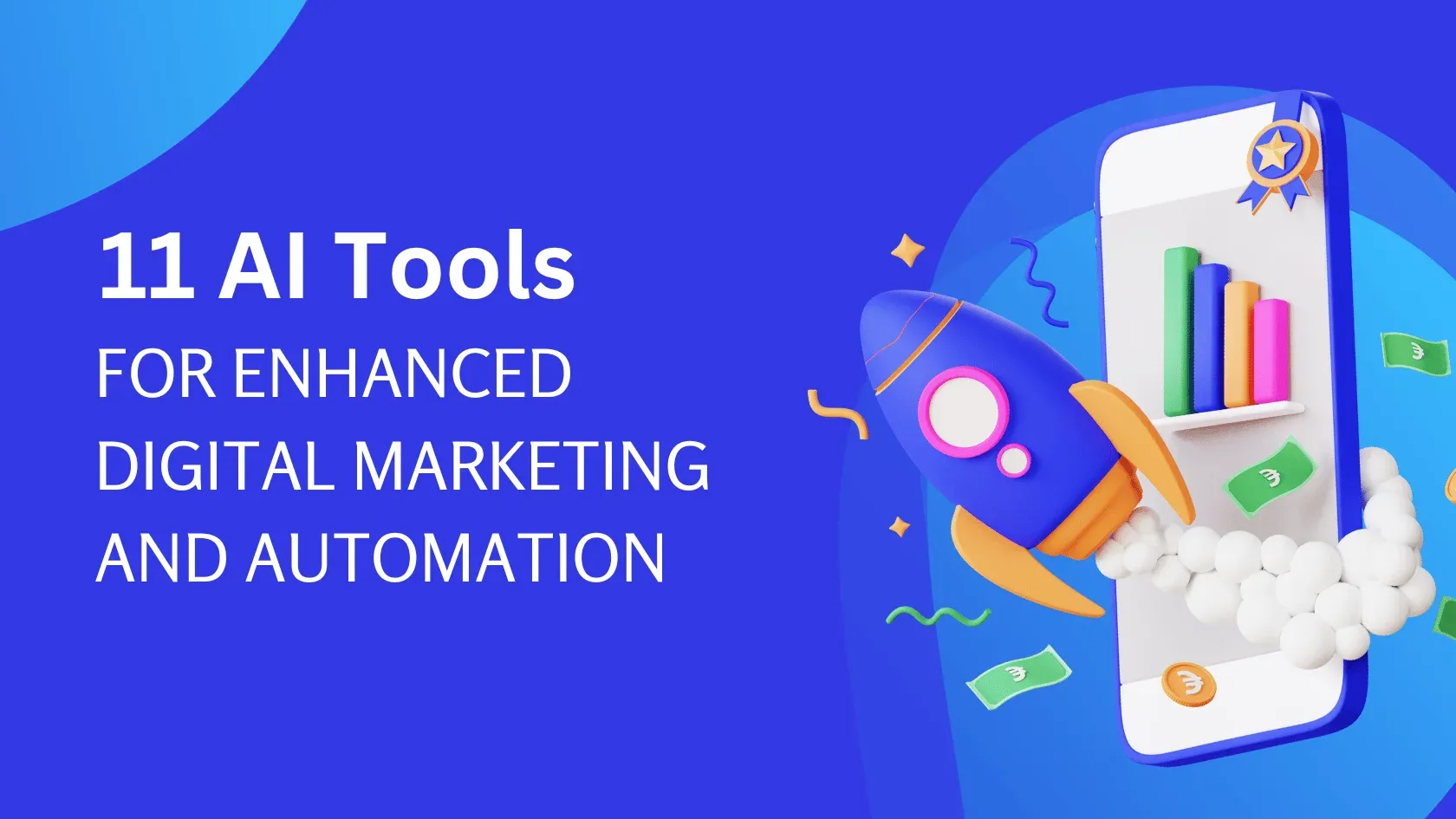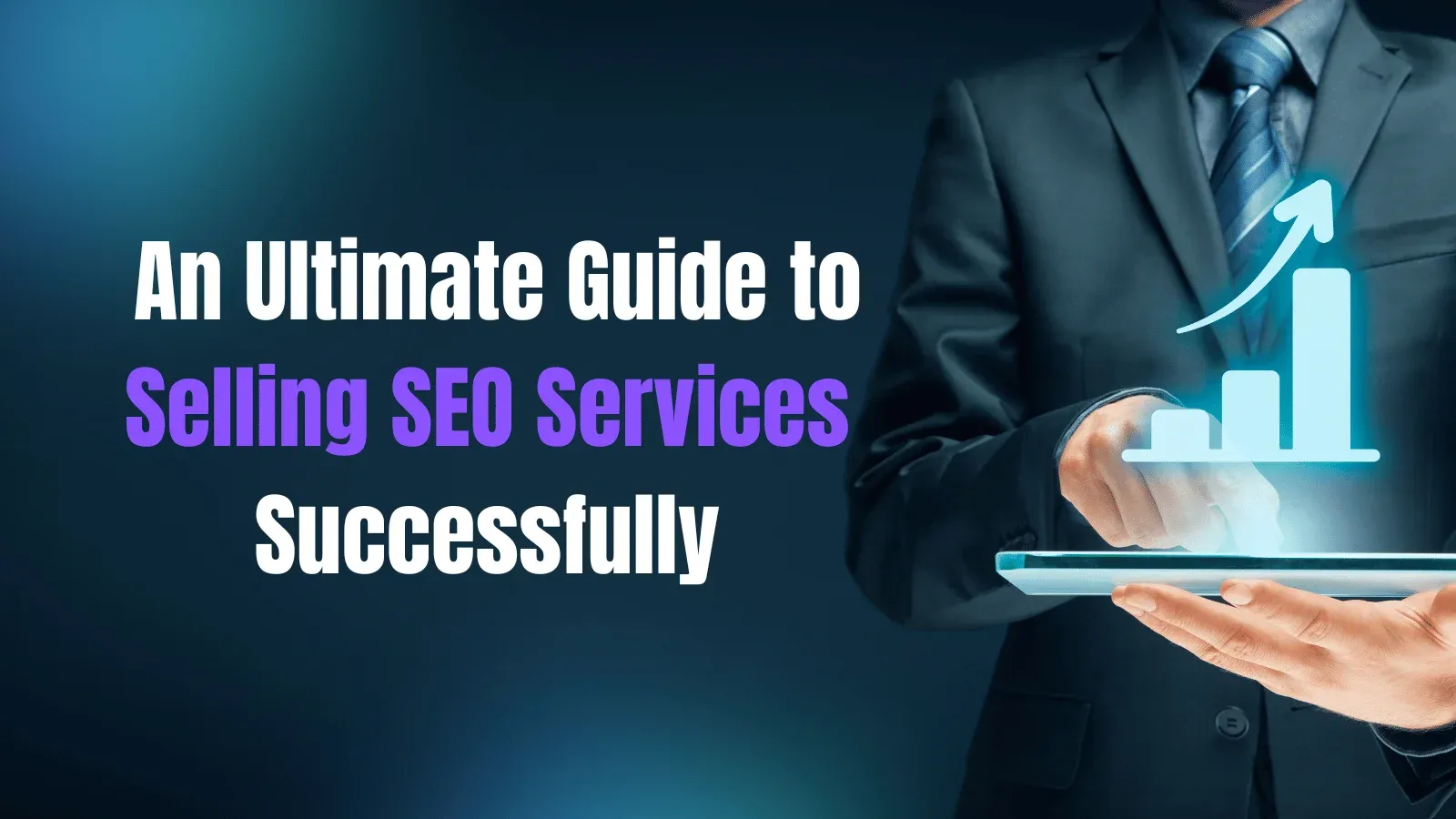The Emergence of AI in Digital Marketing
In recent years, the field of digital marketing has witnessed a significant transformation with the emergence of artificial intelligence (AI). AI, with its ability to analyze vast amounts of data and make intelligent decisions, has revolutionized the way businesses approach marketing strategies. In this article, we will explore the role of AI in modern marketing, how it is changing the marketing landscape, and delve into some of the innovative AI tools that are reshaping the digital marketing industry.
Understanding AI’s Role in Modern Marketing
Artificial intelligence refers to the simulation of human intelligence in machines that can perform tasks that typically require human intelligence, such as visual perception, speech recognition, decision-making, and problem-solving. In the context of digital marketing, AI is used to analyze consumer data, automate repetitive tasks, personalize marketing campaigns, and provide valuable insights for strategic decision-making.
AI-powered algorithms can process and analyze vast amounts of data from various sources, including social media platforms, websites, customer interactions, and market trends. This data analysis enables businesses to gain a deep understanding of consumer behavior, preferences, and trends, ultimately helping them make data-driven marketing decisions.
How AI is Changing the Marketing Landscape
The integration of AI in digital marketing has brought about several transformative changes. Here are some key ways in which AI is reshaping the marketing landscape:
- Improved Targeting and Personalization: AI algorithms can analyze consumer data to identify patterns and preferences, allowing businesses to deliver personalized marketing messages and offers to individual customers. This level of targeting and personalization enhances the customer experience and improves conversion rates.
- Automation of Repetitive Tasks: AI-powered tools can automate time-consuming and repetitive marketing tasks, such as data analysis, content creation, and social media management. This automation frees up marketers’ time, allowing them to focus on more strategic and creative aspects of their work.
- Enhanced Customer Engagement: AI-driven chatbots and virtual assistants enable businesses to provide instant and personalized customer support, enhancing customer engagement and satisfaction. These AI-powered chatbots can handle a wide range of customer inquiries, provide recommendations, and even assist in making purchases.
- Improved ROI and Efficiency: By leveraging AI algorithms to analyze marketing data, businesses can optimize their campaigns, identify areas of improvement, and allocate resources more effectively. This data-driven approach leads to improved return on investment (ROI) and overall marketing efficiency.
AI-Driven Content Creation and Management
Content creation and management are integral parts of any digital marketing strategy. AI-powered tools have emerged to streamline and enhance these processes, offering marketers valuable assistance in creating high-quality content, optimizing it for search engines, and managing content workflows efficiently.
1. Jasper.ai – The AI Writing Assistant
Jasper.ai is an AI-powered writing assistant that helps marketers create compelling and engaging content. This tool uses natural language processing and machine learning algorithms to analyze the quality, structure, and readability of the content. It provides real-time suggestions for improving sentence structure, grammar, and overall readability.
Key Features and Applications
Jasper.ai offers a range of features to assist marketers in content creation:
- Grammar and Style Suggestions: The AI writing assistant provides real-time suggestions to improve grammar, spelling, and writing style. It helps marketers ensure that their content is error-free and adheres to the desired tone and style.
- Readability Analysis: Jasper.ai analyzes the readability of the content and provides suggestions to make it more engaging and accessible to the target audience. It helps marketers optimize their content for maximum impact.
- Content Optimization: The AI writing assistant suggests relevant keywords and phrases to optimize the content for search engines. It helps marketers improve the visibility and ranking of their content in search engine results pages (SERPs).
- Plagiarism Detection: Jasper.ai can identify instances of plagiarism in the content and provide recommendations to ensure originality and authenticity.
Jasper.ai is a valuable tool for marketers looking to enhance the quality, readability, and SEO optimization of their content. By leveraging AI, marketers can save time, improve content quality, and increase the chances of their content reaching the target audience.
2. Grammarly – AI-Powered Writing Enhancement Tool
Grammarly is another popular AI-powered tool that assists marketers in enhancing the quality of their writing. It offers a comprehensive set of features to improve grammar, spelling, punctuation, and writing style.
Enhancing Content Quality with AI
Grammarly’s AI algorithms analyze the text and provide real-time suggestions for improvement. Its key features include:
- Grammar and Spelling Correction: Grammarly detects and corrects grammar and spelling mistakes, ensuring error-free content.
- Writing Style Enhancement: The tool provides suggestions to improve the clarity, conciseness, and overall effectiveness of the writing style.
- Tone and Politeness Analysis: Grammarly can analyze the tone of the content and provide suggestions to ensure the desired tone and level of politeness.
- Plagiarism Detection: Grammarly checks the content for instances of plagiarism and provides recommendations to maintain originality.
Grammarly’s AI-powered writing enhancement capabilities make it an indispensable tool for marketers striving to produce high-quality content that resonates with their target audience.
3. Surfer SEO – AI for SEO Content Optimization
Surfer SEO is an AI-driven tool that assists marketers in optimizing their content for search engines. It analyzes top-ranking pages for a given keyword and provides recommendations to improve the content’s relevance, structure, and overall SEO performance.
Streamlining SEO Strategy with AI Insights
Surfer SEO offers a range of features to streamline the SEO content optimization process:
- Content Relevance Analysis: Surfer SEO analyzes the top-ranking pages for a target keyword and provides insights into the optimal word count, keyword density, and related terms. This analysis helps marketers create content that aligns with search engine algorithms and user intent.
- Content Structure Recommendations: The tool provides suggestions for headings, subheadings, and overall content structure to improve readability and SEO performance.
- Competitor Analysis: Surfer SEO compares the content with top-ranking competitors and identifies areas for improvement. It helps marketers understand the competitive landscape and optimize their content accordingly.
- Keyword and Backlink Analysis: Surfer SEO provides insights into keyword usage, backlink opportunities, and overall link profile analysis. This information helps marketers refine their SEO strategy and improve organic search visibility.
By leveraging Surfer SEO’s AI-driven insights, marketers can optimize their content for search engines, improve organic search rankings, and drive more targeted traffic to their websites.
AI for Social Media and Customer Engagement
Social media platforms have become essential channels for businesses to engage with their target audience and build brand awareness. AI-powered tools have emerged to automate and personalize social media management, enabling businesses to enhance customer engagement and streamline their social media strategies.
4. Sprout Social – AI-Enhanced Social Media Management
Sprout Social is a comprehensive social media management platform that leverages AI to automate and personalize social media interactions. It offers a range of features to help businesses manage their social media presence effectively.
Automating and Personalizing Social Interactions
Sprout Social’s AI-driven capabilities enable businesses to automate and personalize social media interactions:
- Social Media Scheduling and Publishing: The platform allows marketers to schedule and publish social media posts in advance, ensuring consistent and timely content delivery.
- Intelligent Social Listening: Sprout Social’s AI algorithms monitor social media conversations and identify relevant mentions, trends, and sentiments. This information helps businesses understand their audience better and engage in meaningful conversations.
- Automated Customer Support: The platform offers AI-powered chatbots that can handle customer inquiries, provide recommendations, and assist in resolving issues. This automation improves response times and enhances customer satisfaction.
- Performance Analytics: Sprout Social provides AI-driven analytics to measure the effectiveness of social media campaigns, track engagement metrics, and identify opportunities for improvement.
Sprout Social’s AI-enhanced social media management capabilities empower businesses to automate routine tasks, engage with their audience more effectively, and measure the impact of their social media efforts.
5. ChatGPT – Advanced AI Chatbot for Engagement
ChatGPT is an advanced AI chatbot developed by OpenAI. It leverages conversational AI to engage with customers, answer their queries, and provide personalized recommendations.
Leveraging Conversational AI for Marketing
ChatGPT offers a range of features to enhance customer engagement:
- Natural Language Processing: ChatGPT understands and responds to natural language queries, making interactions with customers more conversational and personalized.
- Personalized Recommendations: The chatbot can analyze customer preferences and provide tailored product recommendations, enhancing the shopping experience.
- 24/7 Customer Support: ChatGPT can handle customer inquiries round the clock, ensuring prompt and consistent support.
- Lead Generation and Qualification: The chatbot can collect customer information, qualify leads, and assist in the sales process.
By leveraging ChatGPT’s conversational AI capabilities, businesses can provide personalized customer experiences, automate customer support, and drive engagement on various digital platforms.
AI in Email Marketing and Personalization
Email marketing remains a crucial component of digital marketing strategies. AI-powered tools have emerged to optimize email campaigns, personalize content, and improve overall email marketing performance.
6. Seventh Sense – AI for Email Optimization
Seventh Sense is an AI-driven platform that helps businesses optimize their email marketing campaigns. It leverages AI algorithms to analyze recipient behavior, identify optimal send times, and personalize email content.
Personalizing Email Campaigns Using AI
Seventh Sense offers a range of features to enhance email marketing performance:
- Send Time Optimization: The platform analyzes recipient behavior and identifies the optimal send times for each individual, increasing the chances of email opens and engagement.
- Personalized Content Recommendations: Seventh Sense’s AI algorithms analyze recipient preferences and provide personalized content recommendations. This personalization improves email relevance and enhances customer engagement.
- A/B Testing and Performance Analytics: The platform offers A/B testing capabilities to optimize email subject lines, content, and CTAs. It also provides performance analytics to measure the effectiveness of email campaigns.
- Email Deliverability Insights: Seventh Sense analyzes email deliverability metrics and provides insights to improve inbox placement rates and overall email deliverability.
By leveraging Seventh Sense’s AI-driven email optimization capabilities, businesses can improve email open rates, engagement, and overall email marketing ROI.
7. Optimove – AI-Driven Marketing Personalization
Optimove is an AI-driven marketing platform that specializes in customer personalization and journey optimization. It analyzes customer data, predicts behavior, and automates personalized marketing campaigns.
Customizing Customer Journeys with AI Analytics
Optimove offers a range of features to enhance marketing personalization:
- Customer Segmentation: The platform segments customers based on their behavior, preferences, and lifecycle stage. This segmentation enables businesses to deliver personalized marketing messages and offers to each segment.
- Predictive Analytics: Optimove’s AI algorithms analyze customer data to predict future behavior and identify opportunities for personalized engagement. This predictive analysis helps businesses tailor their marketing strategies to individual customers.
- Automated Campaign Execution: The platform automates the execution of personalized marketing campaigns, ensuring timely and consistent delivery of tailored messages across various channels.
- Performance Measurement: Optimove provides AI-driven analytics to measure the effectiveness of personalized marketing campaigns, track customer engagement, and identify areas for improvement.
By leveraging Optimove’s AI-driven personalization capabilities, businesses can deliver targeted and relevant marketing messages, enhance customer loyalty, and drive revenue growth.
AI Tools for Analytics and Market Insights
Data analytics and market insights play a crucial role in shaping effective marketing strategies. AI-powered tools have emerged to analyze vast amounts of data, provide actionable insights, and optimize marketing decision-making.
8. MarketMuse – AI for Content Strategy and Analytics
MarketMuse is an AI-driven platform that assists marketers in developing data-driven content strategies. It analyzes content performance, identifies content gaps, and provides recommendations to optimize content for search engines and user intent.
Utilizing AI for Data-Driven Content Decisions
MarketMuse offers a range of features to enhance content strategy and analytics:
- Content Gap Analysis: The platform analyzes the content landscape for a given topic and identifies content gaps that can be leveraged for strategic content creation.
- SEO Content Optimization: MarketMuse provides recommendations to optimize content for search engines, including keyword usage, content structure, and related topics.
- Competitor Analysis: The platform compares the content with top-ranking competitors and provides insights to improve content quality and relevance.
- Content Performance Analytics: MarketMuse measures the performance of content, including organic search traffic, engagement metrics, and conversion rates. This data helps marketers refine their content strategies and improve ROI.
By leveraging MarketMuse’s AI-driven analytics, marketers can develop data-driven content strategies, optimize content for search engines, and drive organic traffic to their websites.
9. HubSpot – Comprehensive AI Marketing Hub
HubSpot is a comprehensive marketing platform that integrates AI capabilities across various marketing functions. It offers a range of AI-powered tools to automate marketing processes, personalize customer interactions, and provide actionable insights.
Integrating AI Across Marketing Platforms
HubSpot’s AI-driven features enhance marketing efficiency and effectiveness:
- Lead Scoring and Qualification: HubSpot’s AI algorithms analyze customer behavior and interactions to score and qualify leads. This automation helps businesses prioritize and nurture leads effectively.
- Personalized Email Marketing: The platform offers AI-powered tools to personalize email content, subject lines, and send times based on recipient behavior and preferences.
- Automated Social Media Publishing: HubSpot automates social media publishing, ensuring consistent and timely content delivery across multiple platforms.
- Smart Content Recommendations: The platform provides AI-driven content recommendations to engage website visitors and drive conversions.
- Performance Analytics: HubSpot’s AI analytics provide actionable insights into marketing performance, including website traffic, lead generation, and customer acquisition.
By leveraging HubSpot’s AI marketing hub, businesses can streamline marketing processes, personalize customer interactions, and make data-driven marketing decisions.
Innovative AI Tools for Digital Marketing
In addition to the aforementioned AI tools, several other innovative AI-powered tools are reshaping the digital marketing industry. Let’s explore two such tools:
10. Canva – AI-Enhanced Design Tool
Canva is a popular design tool that leverages AI to streamline the design process and enhance creativity. It offers a range of AI-powered features to assist marketers in creating visually appealing graphics and designs.
Streamlining Design Processes with AI Creativity
Canva’s AI-enhanced features simplify the design process and enhance creativity:
- Design Templates: Canva provides a wide range of pre-designed templates that can be customized using AI-generated design suggestions. This feature saves time and enables marketers to create professional-looking designs without extensive design skills.
- Background Removal: Canva’s AI algorithms can automatically remove backgrounds from images, making it easier to create visually appealing graphics.
- Brand Kit: The platform allows marketers to create and store brand assets, such as logos, fonts, and color palettes. Canva’s AI algorithms can suggest design elements that align with the brand’s visual identity.
- Image Enhancement: Canva’s AI-powered image enhancement features can automatically adjust image brightness, contrast, and other parameters to enhance visual appeal.
By leveraging Canva’s AI-enhanced design capabilities, marketers can create visually stunning graphics and designs that resonate with their target audience.
11. Zapier – AI for Marketing Automation and Workflow
Zapier is an AI-powered platform that enables marketers to automate workflows and connect various marketing tools seamlessly. It offers a range of AI-driven features to streamline marketing processes and improve efficiency.
Connecting and Automating Marketing Tools with AI
Zapier’s AI-powered automation capabilities simplify marketing workflows:
- Integration of Marketing Tools: Zapier enables marketers to connect various marketing tools and automate data transfer between them. This integration eliminates manual data entry and improves workflow efficiency.
- Automated Task Execution: The platform allows marketers to automate repetitive tasks, such as data synchronization, lead nurturing, and social media posting. This automation saves time and reduces the risk of human error.
- Conditional Workflow Automation: Zapier’s AI algorithms can analyze data triggers and execute specific actions based on predefined conditions. This conditional automation enables marketers to create customized workflows that align with their specific needs.
- Performance Analytics: Zapier provides AI-driven analytics to measure the effectiveness of automated workflows, track key metrics, and identify areas for improvement.
By leveraging Zapier’s AI-driven automation capabilities, marketers can streamline their workflows, improve efficiency, and integrate various marketing tools seamlessly.
The Impact of AI on Digital Marketing Strategies
The integration of AI in digital marketing strategies has significant implications for businesses. Let’s explore some key impacts of AI on digital marketing strategies:
Enhancing Efficiency and ROI
AI-powered tools automate repetitive tasks, streamline workflows, and provide valuable insights for data-driven decision-making. This automation and efficiency enhancement lead to cost savings, improved productivity, and higher return on investment (ROI) for marketing campaigns.
By automating tasks such as data analysis, content creation, and social media management, marketers can focus on strategic and creative aspects of their work. This shift in focus allows them to optimize marketing strategies, improve customer engagement, and drive revenue growth.
Predicting and Shaping Consumer Behaviors
AI algorithms can analyze vast amounts of consumer data to identify patterns, preferences, and trends. This analysis enables businesses to predict consumer behaviors, anticipate market trends, and tailor their marketing strategies accordingly.
By understanding consumer preferences and trends, businesses can create personalized marketing campaigns that resonate with their target audience. This level of personalization enhances customer engagement, improves conversion rates, and drives brand loyalty.
Challenges and Considerations in AI Marketing Tools
While AI marketing tools offer significant benefits, there are also challenges and considerations that businesses need to navigate:
Navigating the Ethical Aspects of AI
AI algorithms rely on vast amounts of data to make intelligent decisions. Ensuring that this data is collected and used ethically is crucial. Businesses must comply with data privacy regulations and ensure transparency in their data collection and usage practices.
Additionally, AI algorithms should be designed to avoid biases and discrimination. Fairness and inclusivity should be prioritized to ensure that AI-driven marketing campaigns do not perpetuate or amplify existing societal biases.
Keeping Up with Rapid AI Advancements
The field of AI is rapidly evolving, with new advancements and algorithms being developed regularly. Businesses need to stay abreast of these advancements and ensure that their AI marketing tools are up to date.
Regular updates, training, and monitoring of AI algorithms are necessary to maintain their effectiveness and accuracy. Businesses should also invest in continuous learning and development to leverage the full potential of AI in their marketing strategies.
Future of AI in Digital Marketing
The future of AI in digital marketing holds immense potential for innovation and transformation. Let’s explore some emerging trends and future predictions:
Emerging Trends and Future Predictions
1. Hyper-Personalization: AI will enable businesses to deliver highly personalized marketing experiences at scale. AI algorithms will analyze vast amounts of data to create individualized marketing messages, offers, and recommendations.
2. Voice and Visual Search: With the rise of voice assistants and visual search technologies, AI will play a crucial role in optimizing content for voice and visual search. Marketers will need to adapt their strategies to ensure visibility in these emerging search formats.
3. AI-Generated Content: AI-powered tools will assist marketers in generating content, such as blog posts, social media captions, and product descriptions. These tools will analyze data and create content that aligns with the brand’s tone, style, and target audience.
4. Advanced Customer Journey Mapping: AI algorithms will enable businesses to map and optimize customer journeys across various touchpoints. This optimization will enhance customer experiences, improve conversion rates, and drive customer loyalty.
Preparing for the Next Wave of AI Innovations
As AI continues to advance, businesses need to prepare themselves for the next wave of AI innovations. Here are some key steps to consider:
- Invest in AI Talent: Businesses should recruit and train AI professionals who can leverage the full potential of AI in marketing strategies.
- Embrace Continuous Learning: AI is a rapidly evolving field, and businesses need to stay updated with the latest advancements and best practices.
- Experiment and Iterate: To fully harness the power of AI, businesses should experiment with different AI tools and strategies, iterate based on data-driven insights, and optimize their marketing approaches.
- Collaborate with AI Experts: Collaborating with AI experts and leveraging their expertise can help businesses navigate the complexities of AI integration and maximize its benefits.
Conclusion
The transformative power of AI in digital marketing cannot be overstated. AI-powered tools have revolutionized the way businesses approach marketing strategies, enabling enhanced targeting, automation, personalization, and data-driven decision-making.
By embracing AI in their digital marketing strategies, businesses can gain a competitive advantage, improve efficiency, and deliver personalized experiences that resonate with their target audience. However, it is important to navigate the ethical considerations and keep up with the rapid advancements in AI to fully leverage its potential.
As we look to the future, the integration of AI in digital marketing will continue to evolve, bringing forth new innovations and opportunities. Businesses that embrace AI and adapt to these changes will be well-positioned to thrive in the dynamic digital marketing landscape.



